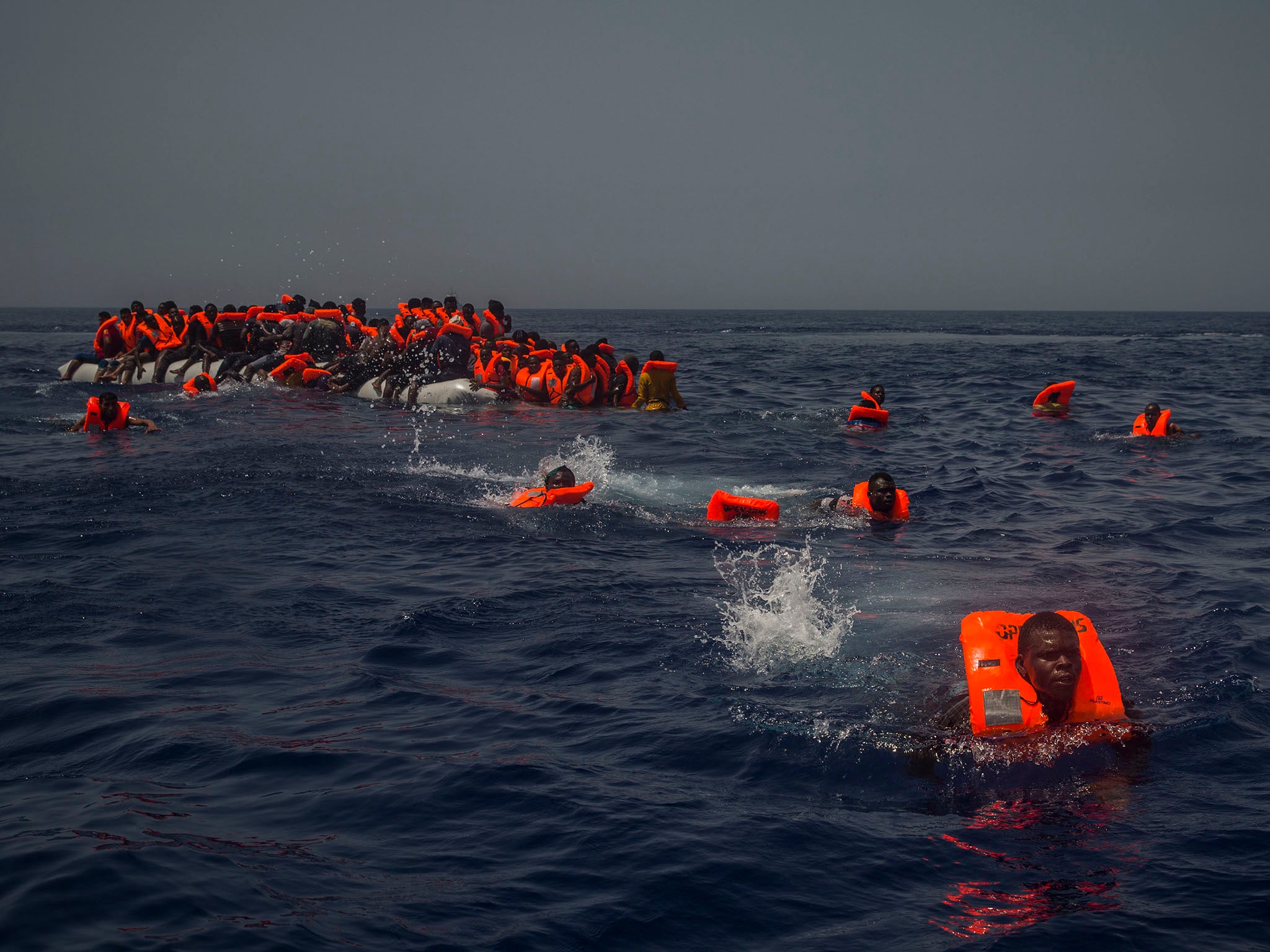Facebook must do more to crack down on people smugglers luring migrants on site, UN migration agency says
‘It is not our job to police Facebook’s pages,’ International Organisation for Migration spokesman Leonard Doyle said

Your support helps us to tell the story
From reproductive rights to climate change to Big Tech, The Independent is on the ground when the story is developing. Whether it's investigating the financials of Elon Musk's pro-Trump PAC or producing our latest documentary, 'The A Word', which shines a light on the American women fighting for reproductive rights, we know how important it is to parse out the facts from the messaging.
At such a critical moment in US history, we need reporters on the ground. Your donation allows us to keep sending journalists to speak to both sides of the story.
The Independent is trusted by Americans across the entire political spectrum. And unlike many other quality news outlets, we choose not to lock Americans out of our reporting and analysis with paywalls. We believe quality journalism should be available to everyone, paid for by those who can afford it.
Your support makes all the difference.The United Nations’ migration agency is calling on social media giants to do more to crack down on people smugglers using their platforms to lure West African migrants to Libya.
International Organisation for Migration (IOM) spokesman Leonard Doyle said smugglers often use Facebook to make illicit deals to take would-be migrants to Libya, where they face the possibility of detention, torture and slavery.
He said young West Africans are especially vulnerable to being lured by smugglers, who often attract them with “false promises” of jobs in Europe.
“We think it’s time for some grown-up responsibility by the social media companies writ-large for their platforms, which are clearly having a very detrimental role on young vulnerable populations across West Africa,” Mr Doyle said.
“We ... ask social media companies to step up and behave in a responsible way when people are being lured to deaths, to their torture.”
It comes as the UN appealed on Monday to countries worldwide to take in 1,300 mainly African refugees stranded in Libya. Many, it said, have suffered mistreatment, while being kept in appalling conditions in detention.
Hundreds of thousands of migrants have attempted to make the treacherous journey across the Mediterranean to Europe since 2014, with as many as 3,091 dying en route. Many of those died after passing through Libya.
A recent investigation by CNN revealed images appearing to show migrants being auctioned off as slaves by Libyan traffickers. The broadcaster was told of auctions at nine locations across Libya, but many more are believed to take place each month.
Libya has long struggled to cope with the major influx of migrants from sub-Saharan Africa. The UN estimates there are between 700,000 and one million migrants in the country.
Europol’s Migrant Smuggling Centre estimates that 90 per cent of migrants arriving in EU countries have had their journey facilitated by a criminal organisation while the IOM says people smuggling now represents the third-largest business for international criminals.
It estimates that people smugglers make a total of roughly $35bn (£27bn) a year worldwide.
The IOM has been in ongoing talks with social media providers about its concerns over their role in the people smuggling market, but Mr Doyle said so far the talks have been “to very little effect”.
“What they say is, ‘please tell us the pages and we will shut them down’ ... It is not our job to police Facebook’s pages. Facebook should police its own pages,” Mr Doyle said.
A spokesperson from Facebook told The Independent they could not offer an immediate comment on the IOM’s statements.
They said people smuggling is illegal and that posts, pages or groups that coordinate such activity are not allowed on Facebook.
The social media giant also said it continues to urge Facebook users to use its reporting tools to flag any content that they suspect may be illegal or violate the site’s Community Standards.
The company recently announced that it would be hiring an additional 3,000 people as part of its Community Operations team to help strengthen the social media site’s ability to quickly review and remove reported content in violation of its standards.
Mr Doyle said WhatsApp is also used by some people smugglers and that in cases where migrants are tortured, video is sometimes sent back to the victims’ families over WhatsApp as a means of extortion.
WhatsApp, which was developed by Facebook, uses encryption to prohibit third parties from snooping on conversations.

However, the IOM says that feature also makes the messaging app ideal for illicit activities like people smuggling.
WhatsApp did not immediately respond to a request for comment.
The IOM spokesman called on social media firms to adopt a more “civic-minded” approach, noting how Google uses pop-up windows to warn users of potential danger or criminality whenever they look at pornography online.
Dr Paolo Campana, an expert in criminal networks at Cambridge says the people smuggling market is “very competitive”, so smugglers must go out of their way to attract would-be migrants.
They use social media sites like Facebook to share information and even “post pictures of themselves, of successful crossings, of their boats” as a way to “build trust and credibility”.
But Mr Campana maintains that while social media sites are an effective tool for people smugglers, making deals through word-of-mouth is far more common.
The IOM has helped 13,000 migrants return voluntarily to Nigeria, Guinea and other countries from Libya this year, covering their transport and pocket money fees. Mr Doyle said the organisation is also in the process of repatriating 4,000 migrants to Niger.
Additional reporting by Reuters
Join our commenting forum
Join thought-provoking conversations, follow other Independent readers and see their replies
Comments